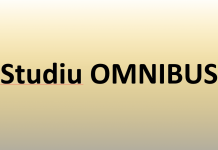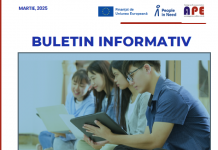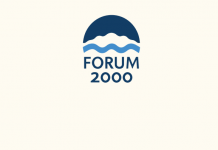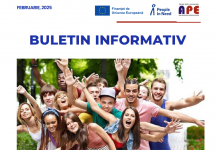On February 24 and 25, Russian Minister of Foreign Affairs Sergei Lavrov undertook a landmark visit to Moldova, in preparation for a possible meeting among Russian President Dmitry Medvedev, Moldovan President Vladimir Voronin, and Transnistria’s Moscow-installed leader Igor Smirnov next month. The ostensible goal is to jump-start a solution to the Transnistria conflict (Moldpress, Interfax, February 24-26).
The Kremlin has timed these steps precisely to the climactic phase of Moldova’s general elections. Parliamentary elections are scheduled to be held on April 5 and the new parliament will elect a new president, who will then nominate a prime minister to form a new government.
Lavrov’s visit was a landmark move for a number of reasons. It was the first visit to Moldova by any Russian minister of foreign affairs since Voronin came to power in Chisinau in 2001. It is meant to demonstrate the Kremlin’s political reconciliation with Chisinau, after the latter’s rejection of the 2003 Kozak Memorandum (a plan to control a "federalized" Moldova) and the 2006 Russian economic embargos against Moldova. The Kremlin is unfreezing the negotiations on Transnistria after having frozen them from March 2006 to date. Lavrov’s visit, moreover, marks a reversal of Kremlin policy, which opposed Voronin in the 2005 elections but is now grudgingly accepting him, although the terms of that acceptance are yet to be clarified. Finally, Lavrov’s visit tried to set the stage for Moscow to influence Chisinau’s transition of political power, from the eight-year governance of Voronin’s party to the next political cycle.
For its part, Moldova’s majority party (Communist in name only) seeks to use the restored relationship with Moscow in order, at a minimum, to recapture Russophone leftist votes in these elections and, as a maximum goal, to induce Moscow to facilitate progress on resolving the Transnistria conflict on terms acceptable to Moldova, instead of blocking such progress as heretofore. Such an outcome, or the close prospect of one, could ensure an electoral landslide for Voronin’s party, which is now headed for a narrow win. The Kremlin can use these levers creatively to influence the outcome of Moldova’s elections in favor of the incumbent majority party and cement a post-election rapprochement with it.
Moscow and Chisinau profoundly distrust each other, but they are seeking to use each other in the short term in their respective interests. Those interests will remain mutually irreconcilable in the post-election period, if Moldova continues to seek European integration as a top national priority and if Russia persists with sphere-of-influence rebuilding, using Transnistria as a remote-controlled instrument against Ukraine as well as Moldova and now increasingly against the West. These conflicting priorities will almost certainly remain constant in both Moscow and in Chisinau in the foreseeable future.
Playing in Chisinau’s favor is Moscow’s sudden bout of paranoia about the possible entry of Romania-oriented parties in the Moldovan parliament. This factor is inducing Moscow to regard Voronin’s party as the lesser evil. The Liberal Party (liberal also in name only) rhetorically favors Moldova’s merger with Romania, and many in that party have taken up Romanian citizenship. The party never managed to enter the parliament until now. At this time, however, it is capitalizing on the public’s cyclical fatigue with the incumbent government and on the youthful image of Chisinau’s mayor Dorin Chirtoaca, one of the party’s leaders. The Kremlin also suspects Moldova’s small Liberal-Democrat Party of harboring Romanian irredentist designs; and, even worse from Moscow’s perspective, it notes that the party has written pro-NATO planks into its electoral program.
Moscow, today as in Soviet times, seeks almost dogmatically to prevent Moldova’s unification or even rapprochement with Romania, which Russia deems to be against its interests. Romanian irredentism, however, has very low support in Moldova and none internationally. Russia’s post-Soviet policy on this issue looks wholly irrational, but it does reflect a dangerous sense of entitlement on Russia’s part to interfere in Eastern Europe.
By exaggerating yet again the Romanian factor’s importance and conjuring up a NATO specter, the Kremlin is reverting to a contest for influence within Moldova. This gives Voronin an unhoped-for opening. He can now capitalize on Lavrov’s visit and possibly even on photo-opportunities with Medvedev at the height of the electoral campaign to increase the number of votes for the Communist Party. Even the appearance of Kremlin support can make a crucial difference in Moldovan elections. Russian television is the most popular medium there, and Medvedev and Russian Prime Minister Vladimir Putin hold the first two places in the Moldovan popularity polls of foreign leaders (with Voronin a distant first among the national leaders).
Lavrov outlined a sequence of follow-up steps during his visit to Chisinau. The Kremlin would, at a minimum, "assist" Chisinau and Tiraspol to resume "confidence-building" talks through the "expert groups" on socioeconomic and humanitarian issues. Moscow would facilitate a meeting in the 2+1 format, Voronin-Smirnov-Medvedev, to lay the basis of a rapid and "final" settlement of the Transnistria conflict. Whether the 2+1 meeting would be held before or after the Moldovan elections is a crucial issue, which remains open. Any document or decision in the 2+1 format would have to be submitted for endorsement in the international, 5+2 format (Russia, Ukraine, OSCE, United States, European Union, Chisinau, Tiraspol), as Lavrov seems to concede (Moldpress, Interfax, February 24-26).
For its part, Chisinau wants the 2+1 meeting to be held ahead of the election day for obvious internal political reasons. Voronin is not prepared to pay a high price on the settlement terms in return for such a meeting; but the question remains just what price, if any, he could concede. Moscow hopes to push through an outcome on its own terms in the 2+1 meeting and then present the 5+2 format with a fait accompli. Chisinau, however, regards any 2+1 meeting as mere "consultations" and wants "negotiations" to be reserved exclusively for the international 5+2 format, which Voronin deems as the only legitimate forum for the negotiating process and the ultimate decision.
Chisinau insists that any settlement must be based on Moldova’s 2005 law regarding the legal status of Transnistria within Moldova (autonomy), to be accompanied by withdrawal of Russian "peacekeeping" troops and demilitarization of a reunified Moldova’s entire territory. This is a matter of national consensus in the Moldovan parliament. Moscow and Tiraspol, however, want to achieve a political settlement first and address the military issues later. This sequence could allow the retention of Russian troops and the Transnistrian army indefinitely while Moscow and Tiraspol block the political aspects of the settlement.
Voronin made all those positions clear in lengthy interviews with the Russian media in the wake of Lavrov’s visit (Ekho Moskvy, February 25; Kommersant, February 27). Judging by his public statements, he does not seem about to bargain away national interests for electoral interests.
Eurasia Daily Monitor, March 2, 2009






